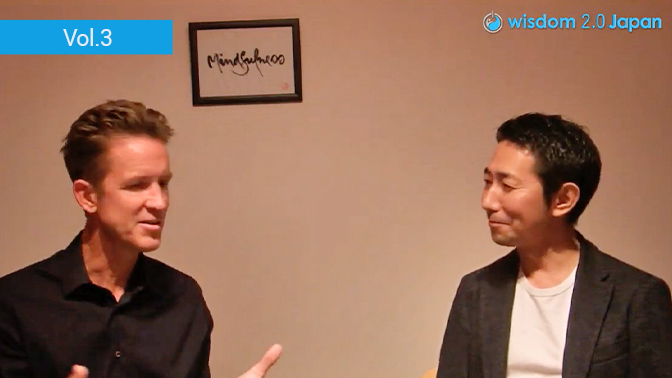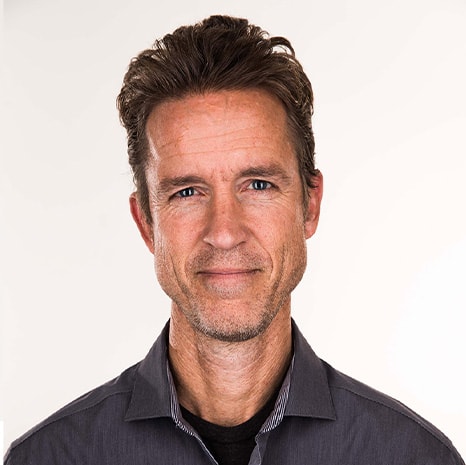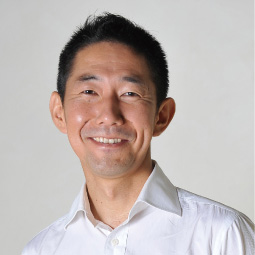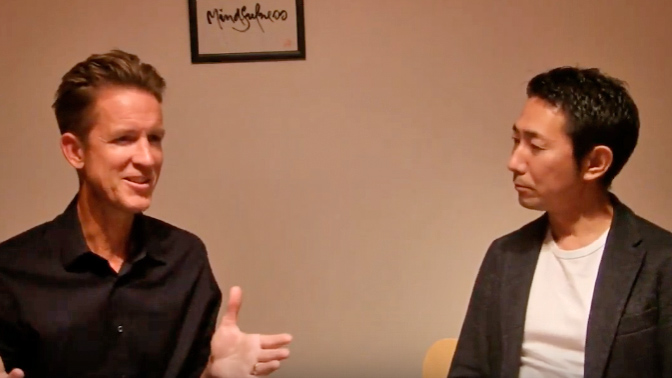wisdom Blogブログ

(English version : click here)
前回に引き続きWisdom2.0の創設者であるソレン・ゴードハマー氏のインタビューをお届けします。
今回のテーマは「Wisdom2.0から得られるもの」です。
第1回 「Wisdom2.0とは何か?なぜそれを始めたのか?」はこちら
第2回 「Wisdom2.0 10年の変化」はこちら
●ソレン・ゴードハマー氏

Wisdom2.0 Conferenceの創設者、社会活動家。
ピースウォークで世界を歩いたのち、Wisdom2.0カンファレンスを立ち上げ、マインドフルネスを用いたデジタル化社会との融合を提案する。
2009年から10年間毎年開催されているカンファレンスは、3500人の参加者が集まる、マインドフルネス関連世界最大規模のものとなる。
●インタビュアー 荻野淳也

Wisdom2.0Japan共同創設者。
慶応大学卒、外資系コンサルタントやベンチャー企業のIPO担当や取締役を経て、リーダーシップ開発、組織開発の分野で、一部上場企業からベンチャー企業までを対象にしたコンサルティング、トレーニング、エグゼクティブコーチングに従事。
ミッションマネジメント、マインドフルリーダーシップ、マインドフルコーチングという軸で、リーダーや組織の本質的な課題にフォーカスし、リーダーや組織の変容を支援している。Googleで開発されたSIYの認定講師。
書籍は「がんばりすぎない休み方」(文響社)他、監修・解説も多数。
Wisdom2.0の参加者が得られるものとは何なのでしょうか?
マインドフルネスを意識した生活に興味があるという方にとって、Wisdom2.0は沢山の学びを得られる場所だと思います。
例えば、研究者の立場から、マインド、ボディへのインパクトや、脳の知識を科学的な観点で話す登壇者がいます。
また実技もありますので、例えば瞑想の体験に興味があるとか、新しい視点でウェルビーイングを知りたい方などは、実際に体験ができます。

また、関心事が似ている人々と出逢ったり、交友関係が広がる可能性もあります。
参加する人達に関心があり、参加者同士がオープンマインドならば、素晴らしいコミュニティに発展することも多いに期待できると思います。
登壇者は彼らの引き出しから、多くの実習やツールを提供してくれるので、皆さんがストレスや不安やイライラを感じる時に、どのようにマインドフルネスを活用し、ウェルビーイングに役立てられるのかを学べます。
科学的な話をしてくれる登壇者の他に、マインドフルネスや叡智をビジネスの分野や様々な組織に取り入れて、活用しているスピーカーも登場しますので、参加者の皆さんは多くの学びを得られると思います。
今、日本ではマインドフルネスを単なる瞑想や新しい自己啓発、宗教などと誤解している人がいます。
ソレンさんが思うマインドフルネスとは何なのでしょうか?そしてその本質的価値とは何なのでしょうか?
マインドフルネスとは何かという時、1つの見方として“意識”・・と説明しますが、つまりそれは我々の内側にすでにあるのです。
わざわざ創り出したり、見つけるというよりも、すでに内側にあるものを外に引き出す感じです。
「マインドフルネスは意識である」と言いましたが、例えば食事中に食べ物を味わっている時は、私たちはその食べ物との繋がりを意識していますよね。
子どもが近寄ってきた時に、視線を向けて温かい気持ちで迎え入れるのも、ある種のマインドフルネスです。
外に出た時、肌にあたる風を感じたり、花が咲いてるな・・木があるな・・と気づくこともマインドフルネスです。

このように、あらゆる体験が命の目覚めを促すものなので、わざわざ瞑想だ、自己啓発だとか、何か複雑なものというよりも、我々みんなの中にずっと継承されている何かがあって、それに触れることで人生はより豊かで価値あるものになる、そう考えています。
なんて美しい木なんだ、なんて素敵な人なんだ、なんて素晴らしい食事なんだ・・と気づくことで、自分の人生との繋がりが深まるからです。
妄想にはまって、うわ~マズイことをしたとか、あれはやるべきでなかったと言っているうちに、人生を見失ったり、目の前を通り過ぎていってしまいます。
ですから意識することによって、我々が内面を掘り起こし外側に向けていくと、人生の瞬間瞬間を体験できるようになります。
そういった瞬間、人は本質に触れるのでより深い満足感や、達成感、感謝の気持ちを体験するのだと思います。
最後のインタビュー 「Wisdom2.0は何を目指すのか 」はこちら
インタビュー動画:
[Interview] with Wisdom 2.0 Founder Soren Gordhamer
3rd round: “What participants can gain from Wisdom2.0”
Here is the 3rd round of the interview with Mr. Soren Gordhamer, founder of Wisdom2.0. The theme of the interview is “What participants can gain from Wisdom2.0.” Enjoy!
– 1st round: “What is Wisdom2.0? How did it get started and why?”click Here
– 2nd round: “How it has changed during the last 10 years” click Here
●(Interviewee) Soren Gordhamer

Founder of Wisdom2.0 Conference & social activist.
After traveling around the world on peace walks to promote peace and environmentalism, Soren founded Wisdom2.0 Conference with the intention of fusing mindfulness with the digital world. Since it was first organized in 2009, the conference has been held annually and to date has gathered more than 5000 people. Today Wisdom2.0 is one of the world’s largest mindfulness-related conferences.
● (Interviewer) Junya Ogino

Co-founder of Wisdom2.0Japan.
After graduating from Keio University, Junya has worked in various fields such as foreign investment consultancy, IPO managing & director in venture companies, leadership & organizational development and has provided advice, training, and executive coaching for many listed companies and venture capitalists. Applying his knowledge of mission management, mindfulness leadership, and mindfulness coaching, Junya focuses on issues related to the transformation of leadership methodologies and organizations. He is also the author of “How to Take a Frustration-Free Day Off: Mindfulness That Begins with Time Taken Off.”
What can a participant expect to gain/learn at Wisdom2.0?
I think if you’re interested in living a life of a greater awareness and Mindfulness you’ll have a lot to learn at wisdom2.0 in Japan.
We’ll have researchers who talk about the science and its impact on our mind and body and learning about brain.
You’ll actually get to do practices like meditation, what you’re curious to learn more about different well being practices.

And we hope also that you’ll meet other friends and another type of people who care about these topics as well.
So I think for people who are interested in who they become, they come with an open-mind. Hopefully, they’ll develop a great sense of community for the people.
We have more practices and more tools for their tool box—the things they apply when they are stressed, when they’re anxious or when they’re frustrated.
They learn the ways to use mindfulness to better support their well being.
And I hope to learn more about the science and we have some amazing speakers who brought mindfulness and wisdom into businesses and to different organizations and so I think if you’re interested in and those aspects, you’ll have a lot that you can gain from joining us.
In Japan, Many people think mindfulness is meditation, self-help technique, or a religion.
What is mindfulness?
What’s the essential value of it?
One way I like to describe mindfulness is just to use the word awareness. It is already something we have inside of us, so some way we don’t need to create it or find it. It’s already inside of us and we just need to bring forth.
One way to think about mindfulness and think about awareness is when we taste our food or eat our food, we are aware… we’re connected to our food.
If our child comes on and we actually see them and we welcome them with a lot of quality of attention that is kind of mindfulness.
If we are outside, we feel the breeze on our skin and we notice some flowers and trees. That’s mindfulness.

So all these experiences—experience of waking up to life—I feel like rather than thinking about it as a meditation or self-help or something that you have that’s complicated, there’s actually something that’s inherent in all of us and what it does is when we tap into that it makes life more rich, more valuable.
Because we realize that because it’s such a beautiful tree, or such a beautiful person or such a wonderful food, we become engaged with life rather than caught in the story of our worries and fears and “OMG, what I’ve done!” or “I should’ve done it!” and we miss our lives. And life kind of goes by before our eyes.
So awareness practice is something that’s inside of us. When we cultivate it, we bring it forth, we get to experience more moments of life.
And those moments, I think, inherently make us feel more satisfied and more of a sense of completion and meaning and appreciation.
Next Interview : 4th round: “What does Wisdom 2.0 aim for?”
Video:
- HOME>
- wisdom Blog>
- 【インタビュー】第3回「Wisdom2.0から得られるもの」創設者ソレン・ゴードハマー氏


















